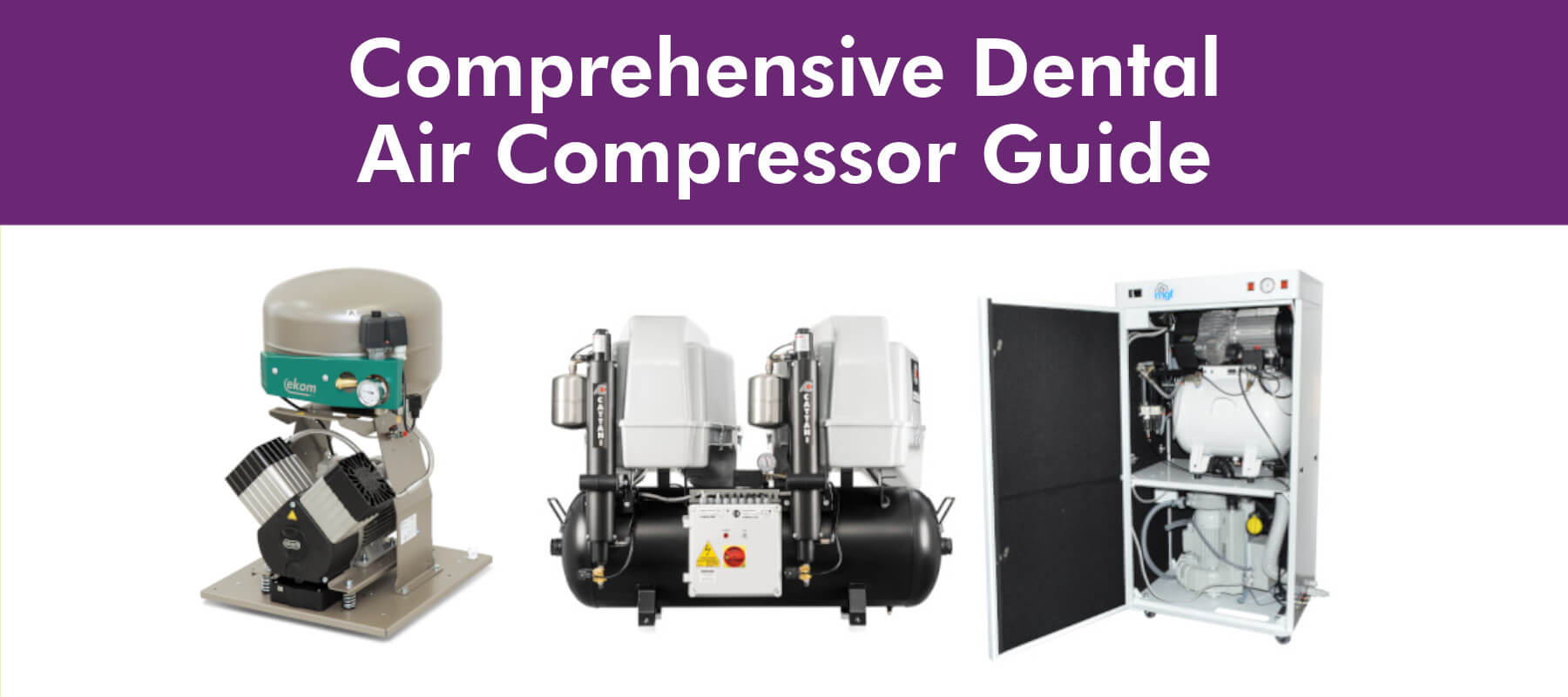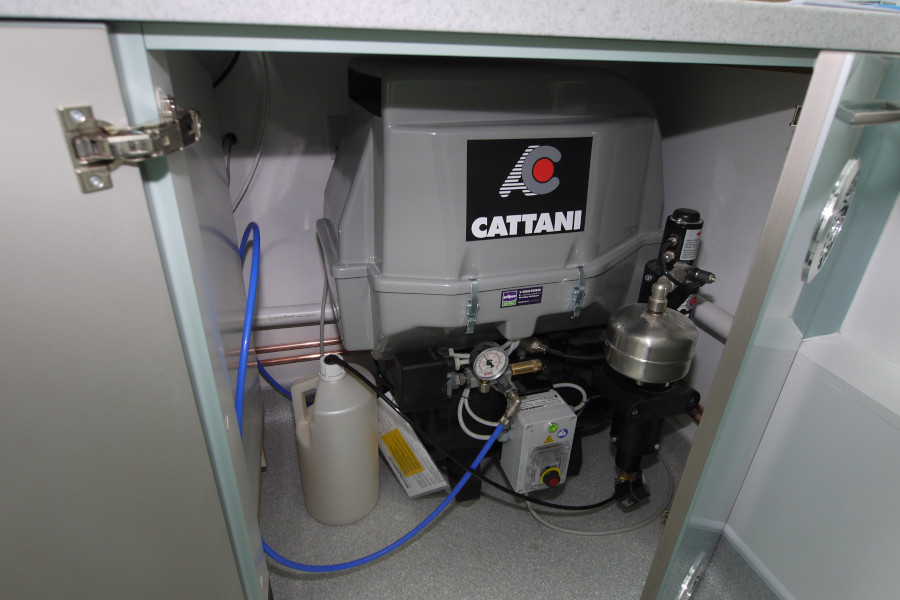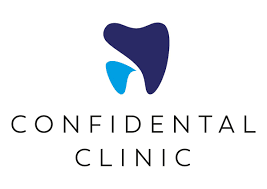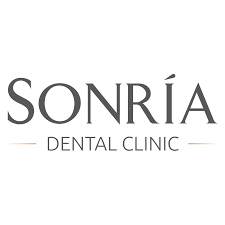
If you’re in the dental field, you know just how crucial the right equipment is for providing top-notch care.
Among the essentials? A reliable dental air compressor.
These powerful yet often unnoticed machines are fundamental in providing quality dental care.
Here’s a sneak peek into the essentials we’re going to dive into:
As seasoned suppliers, installers and service engineers in the realm of dental equipment, we’re here to guide you through understanding the crucial role of dental air compressors in your practice.
An air compressor might not be the first thing you think of when you consider dental equipment, but its role is vital.
Let’s break down what it is and why it’s so crucial for dental clinics.
A dental air compressor is a specialised device designed specifically for use in dental practices. It powers a wide range of dental tools, from drills to suction devices.
The compressor ensures that these tools operate smoothly and efficiently, which is essential for precise and effective dental treatments.
It provides clean, dry, and compressed air, crucial for maintaining hygiene and preventing contamination during dental procedures.
While not as visible as other dental tools, the dental air compressor is a backbone of clinic operations.
Its functionality directly impacts the quality of patient care and the efficiency of dental treatments.
Understanding the dental air compressor’s role and functionality not only shines a light on the intricacies of dental practice but also highlights the importance of selecting and maintaining this key piece of equipment.
It’s a testament to the advanced technology that supports modern dentistry, ensuring patient safety and comfort.
Understanding the functionality of a dental air compressor is crucial for its optimal utilisation in dental practices.
Here’s a breakdown of how these specialised machines work:
The core of a dental air compressor is its ability to compress air.
The compressor unit draws in ambient air and reduces its volume, increasing its pressure. This compressed air is then used to power various dental instruments.
Once the air is compressed, it’s vital to ensure it’s clean and free from contaminants.
This is where the inline filtration system comes into play. It effectively removes impurities from the compressed air, ensuring that the air used in dental procedures is safe and clean.
Dental procedures require dry, moisture-free air to prevent bacterial growth and ensure the longevity of dental equipment.
The compressed air dryer in the system removes impurities via an inline filtration system and lowers the dew point, which is crucial for maintaining dry air in dental tools.
After the air is compressed, purified, and dried, it is stored in the compressor’s tank.
This reservoir ensures a steady and reliable supply of compressed air for various dental tools and equipment.
Dental air compressors are uniquely designed for dental surgeries.
They focus not just on compressing air but also on ensuring it is devoid of moisture and impurities.
This specialisation is vital for protecting dental handpieces and ensuring a dry and clean air supply for procedures.
For enhanced quality control and to avoid contamination, oil-free air compressors are recommended.
These compressors eliminate the risk of oil vapour contaminating the compressed air, which is paramount in a sterile dental environment.
.gif)
Air compressor gif
Dental air compressors are essential in modern dental practices, and they come in various types to suit different needs.
Let’s explore the different types available, each with its specific features and suitability:
Oil-free compressors are increasingly popular in dental practices for several reasons.
These are the benefits of using oil-free compressors compared to oil-lubricated ones:
Dental Compressor Regulation HTM2022 requires compressed air to be generated by an oil-free compressor with an integral dryer, an internally coated air receiver and a breathing air and bacterial filter downstream of the compressor.
Dental Compressor Regulation HTM02-01 Part A.
Dental Compressor Regulation HTM02-01 Part B relate to your pipework system, ensuring it is safely located away from potential damage, is free from leaks and contains sufficient isolation valves.
Comparison Table: Oil-Free vs. Oil-Lubricated Compressors
| Feature | Oil-Free Compressor | Oil-Lubricated Compressor |
|---|---|---|
| Hygiene | High (No oil contamination) | Lower (Risk of oil contamination) |
| Maintenance | Low (No oil changes) | High (Regular oil and filter changes) |
| Noise Level | Generally lower | Can be higher |
| Cost-Effectiveness | Higher (Less maintenance, no oil or filters) | Lower (Need for regular oil and filter expenses) |
| Regulatory Compliance | Fully compliant with dental air standards | May require additional filtration to meet standards |
In the realm of dental air compressors, silent air compressors stand out for their ability to operate with minimal noise.
This feature is incredibly beneficial in a dental setting:
Understanding the different types of dental air compressors and their specific uses is crucial for selecting the right compressor for your dental practice.
Whether it’s prioritising air purity with an oil-free compressor, reducing operational noise with a silent compressor, or choosing the right size and capacity, each type offers distinct advantages tailored to the needs of modern dental care.
In the field of CAD/CAM dentistry, dental air compressors play a crucial role.
They are essential in powering milling and grinding machines, which are integral to the CAD/CAM process.
Here’s what you need to know about their role and specific requirements:
CAD/CAM processes, especially milling and grinding, require a constant and uninterrupted flow of compressed air.
This ensures smooth operation and precision in dental restorations.
The quality of air used in CAD/CAM dentistry is paramount.
Oil-free compressors are a must to avoid contamination that can affect the delicate processes and final outcomes.
Dry compressed air is critical in CAD/CAM operations.
Any moisture in the air can compromise the precision of milling and grinding machines, leading to less accurate dental restorations.
Given the constant need for compressed air, a long-duty cycle compressor is essential. It should be equipped with a membrane drying unit for continuous dry air supply.
Standard absorption dryers typically found in regular dental air compressors are not adequate for these high-demand tasks.
CAD/CAM air compressors are specifically designed to meet the unique demands of digital dentistry.
These compressors provide the continuous, dry, oil-free air essential for the effective operation of CAD/CAM milling and grinding machines.
The integration of CAD/CAM in dentistry has heightened the requirements for air compressors.
Opting for specialised compressors that cater to these needs ensures the efficiency and accuracy of CAD/CAM processes in dental practices.
When setting up your dental practice, one crucial aspect often overlooked is the correct installation and placement of your dental air compressor.
This step is not just about finding a spot where the compressor fits; it’s about ensuring optimal performance, longevity and compliance with health standards.
Our team of skilled designers and engineers specialises in ensuring that your air compressor is not only installed in an ideal location but also easily accessible for routine maintenance.
The placement of a dental air compressor within your clinic is a decision that requires careful consideration.
Here are some key points to consider for the installation location:
Ideally, the compressor should be situated in a central area within the clinic.
This allows for efficient distribution of compressed air to multiple surgeries or dental chairs.
Moreover, the chosen spot must be clean, free from dust and contaminants, to ensure the purity of the air supply.
The quality of air supplied by the compressor is paramount. If installed in inappropriate areas, there’s a risk of compromising this quality.
For instance:
The installation of a dental air compressor goes beyond mere placement.
It’s about ensuring a location that supports the efficient and clean operation of the compressor, ultimately contributing to the smooth running of your dental practice and the health and safety of your patients.

Selecting the right dental air compressor is crucial for the smooth operation of your dental practice.
It’s not just about buying any compressor; it’s about finding one that meets your specific needs in terms of size, power and functionality.
Here’s a guide to help you make an informed decision.
The size of the compressor you need depends on your clinic’s air consumption, which is primarily influenced by the number of dental chairs in operation simultaneously.
Here are some key considerations:
Below is a table to guide you in selecting the right size compressor for your clinic:
| Compressor Type | Recommended Air Compressor |
|---|---|
| 1 Chair Compressor | Cattani AC100 |
| 1-2 Chair Compressor | EKOM DK50 Plus |
| 2-4 Chair Compressor | Cattani AC200Q |
| 4-6 Chair Compressor | Cattani AC300Q |
| 5-6 Chair Compressor | EKOM DK50 4VR/50 |
| 6-8 Chair Compressor | Cattani AC400Q |
| 10 Chair Compressor | EKOM DK50 2x4VR |
| Up to 30 Chair Compressor | EKOM TOWER |
A correctly sized compressor system is not just more efficient; it also has a longer lifespan.
An overworked compressor can lead to issues like reduced air dryness, which may compromise the functionality of handpieces and potentially impact patient safety due to increased moisture in the compressed air.
By carefully considering these factors, you can ensure that you choose a dental air compressor that perfectly aligns with your practice’s needs, guaranteeing efficiency, reliability and safety.
Most silent air compressors operate between the 60-70 decibel range. The use of an Acoustic Hood or Cabinet will reduce noise and minimise disruption.
Acoustic Hood for quiet operation – 63dB – Cattani AC200Q.
Acoustic Enclosure – 47dB – EKOM DK50 Plus S.
Super-silenced Acoustic Cabinet which provides an optimal noise reduction – 45dB – EKOM DK50 10 S.
Dental air compressors are vital to the smooth operation of dental practices.
Their lifespan and efficiency depend on various factors, including usage frequency, maintenance and overall quality.
However, even the best-maintained compressors will eventually need replacement.
Here’s what you need to know:
Regular servicing and maintenance of dental air compressors are crucial not only for their longevity and efficient performance but also for remaining compliant with health and safety regulations.
Here’s a guide to help you with routine compressor care:
Maintenance Checklist:
Facing unexpected air compressor issues in your dental practice can lead to significant downtime and disrupt patient care.
Download our free Air Compressor Fault Finding Guide which is perfectly designed to be pinned to the wall for quick access. This guide provides immediate, easy-to-follow solutions, enabling quick diagnostics and on-site fixes to keep your operations running smoothly.
For more in-depth information on the essential care, maintenance, and cleaning of your air compressors and suction pumps within the dental practice, check out our Plant Machinery Care and Cleaning Guide.
To understand the importance of routine care and maintenance for dental equipment, read this helpful article: The Importance of Routine Care and Maintenance for Dental Equipment.
Our air compressor rental packages are an alternative to purchase, giving you peace of mind knowing that all servicing and maintenance costs are covered.
Contact our Service Department for maintenance tips or a review of your current installation.
We can provide a comprehensive service schedule, contacting you when required to book work at your convenience.
Whether you’re starting from scratch or upgrading your existing surgery, our expert team is here to design, build and equip a practice tailored to your needs.
Fill out this form, and we’ll be in touch within 24 hours to discuss how we can make your project a success.
Eclipse Dental is committed to protecting and respecting your privacy, and we’ll only use your personal information to administer your account and to provide the products and services you requested from us. From time to time, we would like to contact you about our products and services, as well as other content that may be of interest to you.
You can unsubscribe from these communications at any time. For more information on how to unsubscribe, our privacy practices, and how we are committed to protecting and respecting your privacy, please review our Privacy Policy.
When it comes to dental air compressors, the adage ‘you get what you pay for’ certainly holds true.
Investing in high-quality compressors may have a higher initial cost, but it pays off in the long run with longevity, fewer repairs, and lower service costs.
For detailed information on models, features and pricing, explore our complete range of dental air compressors.
Each model is built with a stringent quality check at every production stage, ensuring the highest standards of performance and durability.
See our full range and dental air compressor prices here.
Remember, choosing a dental air compressor is not just about the initial price; it’s about considering the total cost of ownership, including maintenance, longevity and reliability.
Investing in a high-quality compressor from a reputable brand like MGF or Cattani ensures that your dental practice is equipped with a reliable, efficient and long-lasting air supply system.
Discover some of the solutions we have achieved in a wide range of surgeries and practices.
If you require dental air compressor reviews we can provide contact details of surgeries that have one of our machines installed.
In this comprehensive guide, we’ve explored the critical role of dental air compressors in modern dental practices.
From understanding the mechanics and functionalities of various types of compressors to diving into the specifics of oil-free and silent compressors, we’ve covered essential aspects to help you make an informed decision for your dental practice.
Key Takeaways:
The right dental air compressor is not just a piece of equipment; it’s a cornerstone of your dental practice, ensuring operational efficiency, patient safety and compliance with industry standards.
Are you looking to enhance your dental practice with the right air compressor?
Do you need guidance on selecting, installing, or maintaining your dental air compressor?
Our team of experts at Eclipse Dental is here to help.
We Offer:
Don’t let the complexities of choosing and maintaining a dental air compressor overwhelm you.
Contact us today, and let us help you find the perfect solution for your dental practice.
Schedule a consultation or learn more about our services.
What should I consider when choosing a dental air compressor for my clinic?
When selecting a dental air compressor, consider the size and layout of your clinic, the number of dental chairs, and the specific dental procedures you perform.
It’s important to choose a compressor that matches your clinic’s air demand, ensuring it operates efficiently without being overworked.
Additionally, consider the type of compressor (oil-free or oil-lubricated), noise level, maintenance requirements and adherence to dental regulations.
How often do dental air compressors need servicing?
The servicing frequency for dental air compressors depends on the specific model and usage. Generally, it is recommended to have them serviced at least once a year to ensure they operate efficiently and safely.
Regular maintenance checks can include examining and cleaning filters, checking for leaks, and ensuring the compressor is producing clean, dry air.
Adhering to a regular service schedule can significantly prolong the lifespan of your compressor.
Are oil-free compressors better for dental practices?
Yes, oil-free compressors are typically preferred in dental practices due to their ability to produce clean, contaminant-free air, which is crucial for patient safety and the longevity of dental instruments.
Oil-free compressors eliminate the risk of oil vapours contaminating the air supply and reduce maintenance needs, as there’s no oil to change or monitor.
Can a dental air compressor affect the quality of dental work?
Absolutely. A reliable and efficient dental air compressor is essential for various dental tools and procedures.
Poor air quality or insufficient air pressure can lead to compromised performance of dental instruments, affecting the precision and quality of dental work.
Furthermore, an unreliable compressor might lead to downtime and inconvenience, impacting the overall patient experience.

I have used them for the first time in recent months for a complicated project in carrying out a practice refurbishment. Eclipse were meticulous and brilliant. Very knowledgable engineers and a beautiful finish to my practice. They really are a family based business who will look after you. Very professional company and will definitely keep using them.

I had my 2 surgery practice completely stripped out and services repositioned with new flooring, new equipment and redecorated. They kept to the agreed time scale and we were up and running in our state-of-the-art new surgery. Thank you Eclipse and I will be using your services again.

I did a lot of research looking for a dental fit-out company before I came across Eclipse Dental. They designed the surgery exactly the way I wanted it to look which suits my requirements perfectly. The final result was phenomenal, just phenomenal!

The engineers that attend our practice are very knowledgeable and always act in a professional manner. If we have an emergency situation John Boyt always tries his best to fit us in. I have no hesitation in recommending Eclipse Dental Engineering to you for all your servicing and breakdown needs.

Eclipse listened to my ideas, they added a lot to them and improved my initial design. They had loads of realistic and creative ideas for a 21st century dental practice! Two surgeries were refurbished on time without any interruption of our clinics.

We would highly recommend the awesome Eclipse team who guided us through the design process, finishing touches and colour schemes. Their ability to combine build works with equipment and dental engineering makes it so much easier and better value.

I am very pleased with the result, it is of a high quality and surpassed my expectations, on the strength of the work done I commissioned some extra wall cabinetry. The whole process was hassle-free and I would be very happy to recommend Eclipse to my friends in the business.
We used Eclipse recently in an emergency as we had equipment failure. They were very quick to respond to our call and were able to get us working again within 2 hours. The engineer was very friendly and professional and I would highly recommend this company.

I would like to express my gratitude to you and your team for your professionalism and prompt response when our dental chair packed up. You attended the same day, removed the damaged chair and installed a rental to allow us to continue practising.

Having dealt with many fit-out companies over the years, Eclipse Dental has been one of the most professional, dependable and sincere companies I have ever worked with. I would not hesitate to use their services again.

Excellent service, Eclipse have worked tirelessly for us and have always come out same day if we have a problem stopping us working. Thanks to all at Eclipse.

Their awareness of CQC regulations regarding equipment relocation and our necessity to minimise downtime was brilliant. We would like to recommend Eclipse Dental to anyone considering a refurbishment or relocation.

Very happy with the service and reliability of the team. From the beginning to the end, everyone was always helpful and very kind. I definitely will recommend Eclipse Dental!

I liked how swiftly the projects were done. Everything was managed, everything was timed and everything was coordinated. And every day we saw something happening. It was very exciting.

The quality of craftsmanship was exceptional—the cabinetry, flooring and all custom elements were made precisely to our specifications and aligned perfectly with our vision for the space.

Brilliant. Just professional! Complete refit of surgery. Flawless.

The boys did well! We didn’t give them much time to prepare but they did a great job, extremely pleased.

We have had the chairs for some time now and are happy with them. They serve what we need them for. The aftercare service is excellent

Eclipse are very flexible and listen to your needs. We are very impressed with the quality of workmanship they delivered. I would not hesitate to continue recommending Eclipse.

Eclipse were always accommodating of any requests and would always go the extra mile. I look forward to working with them for many years to come.

We are delighted with the end result. The practice looks good and, more importantly, works ergonomically and efficiently.